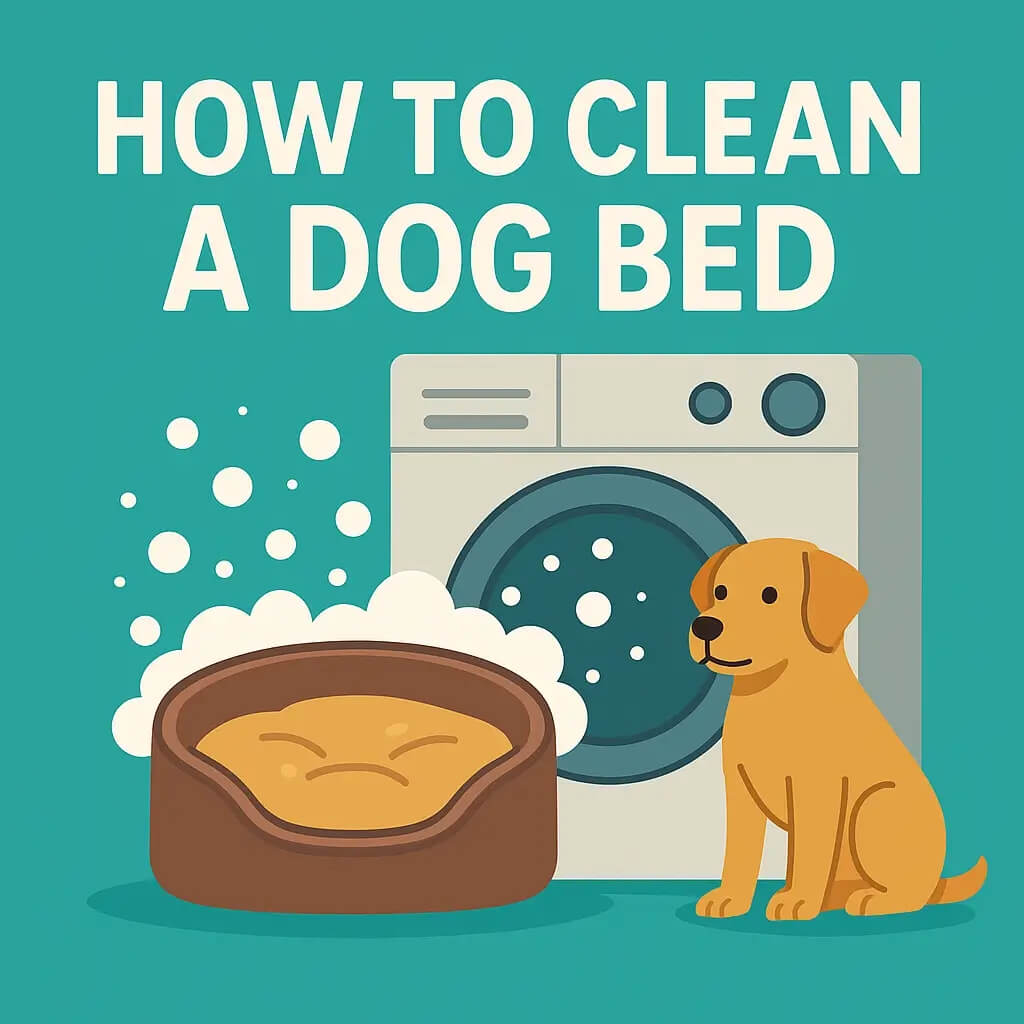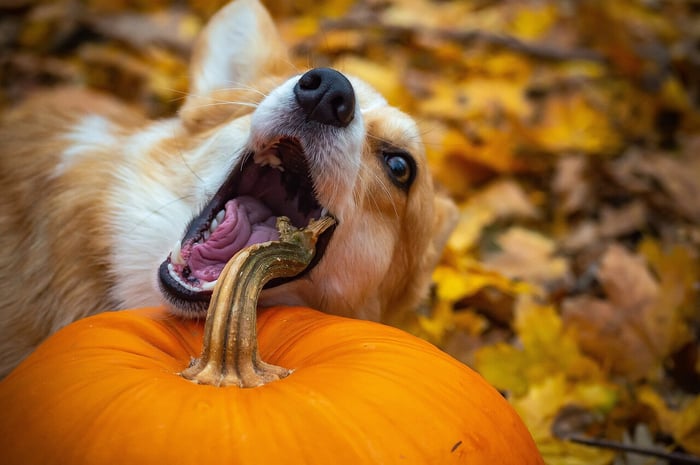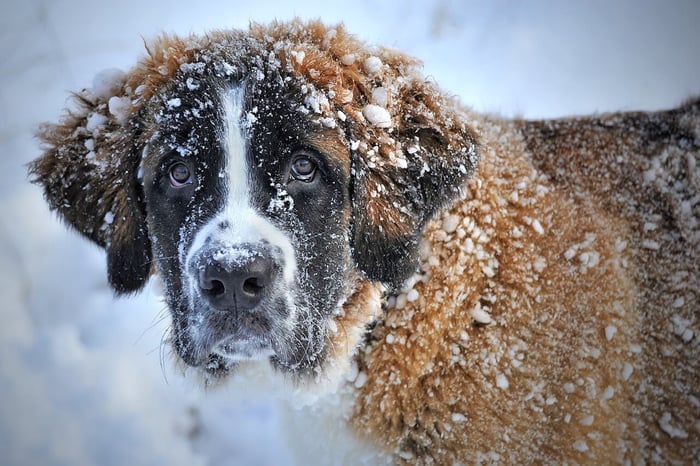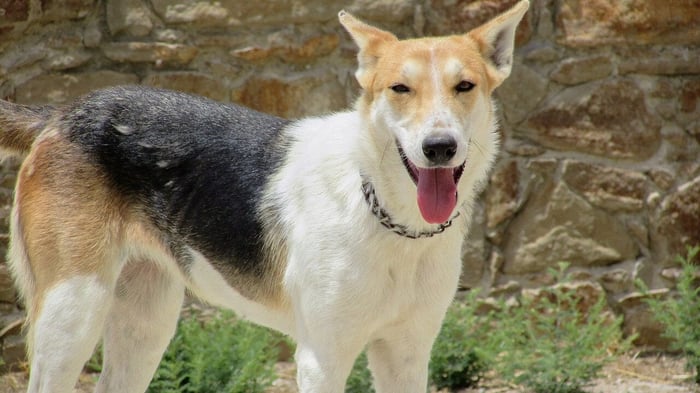It's a lovely Saturday afternoon, and while the world outside is busy, your best pal is snuggled up on their plush dog bed, nose-to-tail, catching some serious zzz's. If you're anything like me, you've probably glanced over at your dog and thought, "Why do dogs sleep so much?" The sight of them in their cozy luxury dog bed might even spark a little envy. Wouldn't it be nice to drift off without a care, just like them? But before we get too envious, it's worth remembering that our canine companions have some pretty compelling reasons for their extended naps. Let's take a closer look at doggy dreamland and uncover the mystery behind their long slumbers.

Understanding Dog Sleep Cycles
If you’ve ever watched your pup twitch, wag, or even bark softly while asleep, you’re witnessing the fascinating world of dog sleep cycles in action. While dogs may seem like they’re always napping, their sleeping patterns are more complex than you might think.
Dogs Have Shorter Sleep Cycles Than Humans
Unlike humans, who enjoy long, deep sleep sessions, dogs tend to sleep in shorter bursts. Their sleep cycles typically last about 20–30 minutes and include both slow-wave sleep (SWS)—where the body rests—and rapid eye movement (REM) sleep—when dreaming occurs.
That’s why many dogs may appear to wake up easily or frequently change positions throughout the night.
Most Dogs Nap Throughout the Day
Dogs are polyphasic sleepers, which means they sleep multiple times over a 24-hour period. This explains why your dog might nap for long periods during the day and still stay awake for stretches at night.
Most adult dogs need about 12–14 hours of sleep per day, though puppies, senior dogs, and certain breeds may need much more to feel fully rested.
Life Stage and Sleep Behavior
A dog’s age has a big influence on how they sleep:
Puppies have immature nervous systems and spend more time in REM sleep.
Adult dogs have more balanced sleep-wake schedules with deep, restful naps.
Older dogs may cycle between awake and sleep more often and require extra comfort and support from orthopedic or calming dog beds.
Fluffy Fuzzy Calming Dog Bed Sofa Protector Pet Mat

$53.99
Turn your sofa into a retreat, for your pet with our Fluffy Fuzzy Calming Dog Bed Sofa Protector Pet Mat. This versatile and plush sofa protector not keeps your furniture safe. Also offers a soothing dog bed for your furry… read more
What If My Dog’s Sleep Pattern Changes?
While changes in a dog’s sleep cycle can be part of aging or seasonal shifts (like hot weather), a sudden change in sleep habits may signal an underlying health issue. If your dog starts sleeping excessively, acts lethargic, or avoids activity, it’s smart to consult your vet.
Help Your Dog Get Restful Sleep
Understanding your dog’s sleeping habits is key to making sure they get the extra shut-eye they need without missing signs of a problem. Whether it’s a cozy bed, a cool room, or a relaxing routine, creating the right environment can help your pup sleep better—day or night.
Pro Tip: Dogs sleep best with consistency. Create a dog sleep schedule that matches their lifestyle—and support it with a dog bed they’ll actually want to curl up in.

Factors That Influence Your Dog's Sleep Habits
Ever wondered why dogs sleep so much compared to humans? From puppies to senior dogs, the truth is that a dog’s sleeping patterns are shaped by a mix of breed, age, lifestyle, and even the weather. Let’s break down the most common reasons dogs sleep long hours, and when pet parents should pay closer attention.
1. Age: Puppies, Adult Dogs, and Senior Sleepers
A dog’s age is one of the biggest factors in how much sleep they need. Young pups can snooze up to 20 hours a day as their growing bodies need time to recover. Most adult dogs sleep around 12–14 hours daily, though small dogs may sleep more due to higher energy burnout. As dogs age, they naturally require more sleep, and older dogs often take frequent naps throughout the day.
2. Breed & Size: Some Dogs Are Just Built to Snooze
Certain breeds, especially large ones like Saint Bernards, Newfoundlands, or sled dogs bred for pulling sleds, are known for needing extra shut-eye. Small dogs tend to have shorter bursts of energy and may also nap often. Working dogs, on the other hand, may stay awake longer due to higher physical demands and structured routines.
3. Lifestyle & Activity Levels
Dogs tend to sleep more when their lifestyle is low-energy or routine. A pup with plenty of stimulation during the day will have a more balanced sleep-wake schedule, while bored dogs may nap out of sheer inactivity. If your dog is sleeping for long periods with little play or interaction, they might just need more enrichment.
4. Environment & Weather Conditions
Hot weather or extreme cold can make many dogs feel drowsy, prompting long stretches of sleep during the day. Make sure your dog has a cool, comfy bed and fresh water nearby, especially during summer, to support healthy rest.
5. Health Issues or Sudden Changes
Excessive sleeping could be a sign of an underlying health issue. If you notice a sudden change in your dog’s sleep cycle or energy levels, it's best to check in with your vet. Conditions like arthritis, thyroid imbalances, or even infections can cause healthy dogs to feel off and sleep so much more than usual.
Sleep Cycles: Just Like Humans, Dogs Have REM Too
Dogs go through sleep cycles similar to humans, alternating between slow-wave sleep and rapid eye movement (REM). But they reach REM faster and wake more easily. That’s why many dogs sleep in short, light phases instead of long, deep stretches like we do.
How Much Sleep Is Normal for Dogs?
As a general rule, here’s what to expect:
Puppies: 18–20 hours a day
Most adult dogs: 12–14 hours
Senior dogs: Up to 18 hours
Working breeds: Less, due to daily activity
Knowing your dog’s sleep patterns helps you spot what’s normal vs. what might need a closer look. If you're ever unsure, don't hesitate to consult your veterinarian—especially if your pup's sleeping habits suddenly shift.

The Benefits of Sleep for Dogs
We frequently make light of the fact that our pets live the ultimate luxurious existence, lazing away with no worry in the world. But, beneath the surface, when your dog drops off to sleep, a slew of vital bodily and mental processes kick into high speed. Let us shine some light on the unsung benefits of your dog's napping habits.
Healing and Growth: Sleep is essential for the physical and mental health of dogs because it allows them to repair muscles and tissues, boosting growth spurts and vitality.
Brain Power Boost: Sleep benefits both humans and dogs by rejuvenating the mind, improving memory, and facilitating the acquisition of new tricks.
Energy Conservation: Dogs preserve energy for hunting and territory defence while maintaining their urge for short sleeps to prepare for unexpected problems.
Conclusion
As custodians of their well-being, it's up to us to ensure they get the quality rest they deserve. So, whether you're investing in a new, plush bed or simply letting them snooze undisturbed on a lazy afternoon, remember: every moment of sleep is a step towards a healthier, happier dog.
And the next time you find yourself smiling at your sleeping pup, take a moment to appreciate the simple, profound joys they bring into our lives. For in their restful moments, we find peace, gratitude, and an ever-deepening connection.
Read More: https://funnyfuzzy.com/a/blog/how-cold-is-too-cold-for-dogs












